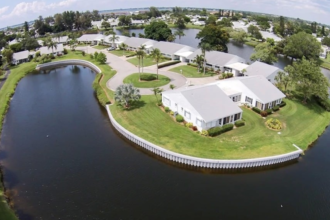Getting injured in a car accident is always traumatic. The toll it takes on a person is compounded when they start seeing high medical bills roll in as a result of being treatment for their injuries. Unfortunately, even no-fault insurance can leave victims struggling.
Attorneys like Michael T Gibson PA can help the victims in a car accident get the compensation they deserve. Many people believe that PIP insurance will help them quickly and easily be compensated, but that is not always the case. Below is crucial information about what PIP or no-fault insurance is, how it works, and what it means if you are injured in a car accident.
What is No-Fault Insurance or Personal Injury Protection (PIP)?
Personal injury protection (PIP) coverage and no-fault insurance are terms used interchangeably to describe the same thing. PIP coverage is there to provide compensation to people who have been injured in a car accident. Typically, PIP covers the person who holds the policy, as well as passengers without PIP coverage, relatives within the same household as the policyholder, and other authorized drivers.
Currently, there are 12 states that require PIP coverage by law. Of these 12 states, 11 are considered “no-fault” states. No-fault essentially means that drivers are required to carry insurance that covers their own damages and injuries rather than having insurance that covers the damages and injuries of the other vehicle’s driver after an accident. PIP insurance disputes are fairly common and usually occur when a person is trying to claim PIP benefits after an accident but are denied.
What PIP Covers
PIP covers a wide range of things, depending on the state. Some of these things include:
- Medical expenses. PIP coverage should apply to a wide range of medical expenses, including medical treatment, ambulatory services, rehabilitation, dental care, and more. In some states, victims are reimbursed 100%, while others, such as in Florida, require people to pay up to 25% of the cost themselves. Unfortunately, this has resulted in far more disputed PIP claims.
Funeral expenses. PIP coverage should apply to the cost of funerals, cremations, and burials.
Lost income. If the driver or passengers were unable to work as a result of injuries sustained in a car accident, PIP insurance should cover the applicable lost wages. Self-employed victims who have to hire help to perform duties in their absence may have the wages of the person they hire covered.
Household or Childcare expenses. Sometimes, a car accident results in injuries that make it difficult for a person to care for their children. The same can also be true for carrying out household chores. PIP insurance can sometimes cover costs related to hiring childcare or household services in this circumstance.
What Doesn’t PIP Cover?
While some auto insurance policies have bodily injuries listed as part of coverage, PIP does not cover everything that regular car insurance does. PIP insurance does not cover damages to a person’s property, including their vehicle. It also will not cover injuries a person sustains while using their car to earn money or injuries resulting from an intentional car accident. It also does not cover injuries sustained while committing a crime, such as engaging in high-speed chases with law enforcement.
How Does PIP Work?
PIP coverage was originally intended to prevent a person from suing another driver for compensation after an accident. Typically, in states where PIP coverage is required, drivers are not legally allowed to sue the other driver unless the injuries sustained were extensive. PIP coverage allows people to claim benefits immediately after an injury in a car accident rather than waiting to hash it out with the at-fault driver’s insurance company.
The Bottom Line: Should You Have PIP Coverage?
If you are in one of the states that requires PIP, then you absolutely must have the coverage to drive legally. In the remaining states, it is unlikely that this type of insurance is offered to drivers at all. Unfortunately, despite the best intentions of PIP coverage, it does not always work out in the victim’s favor. If you have been in a car accident but are being denied PIP benefits, speaking with an attorney can help you get compensation you deserve.














